
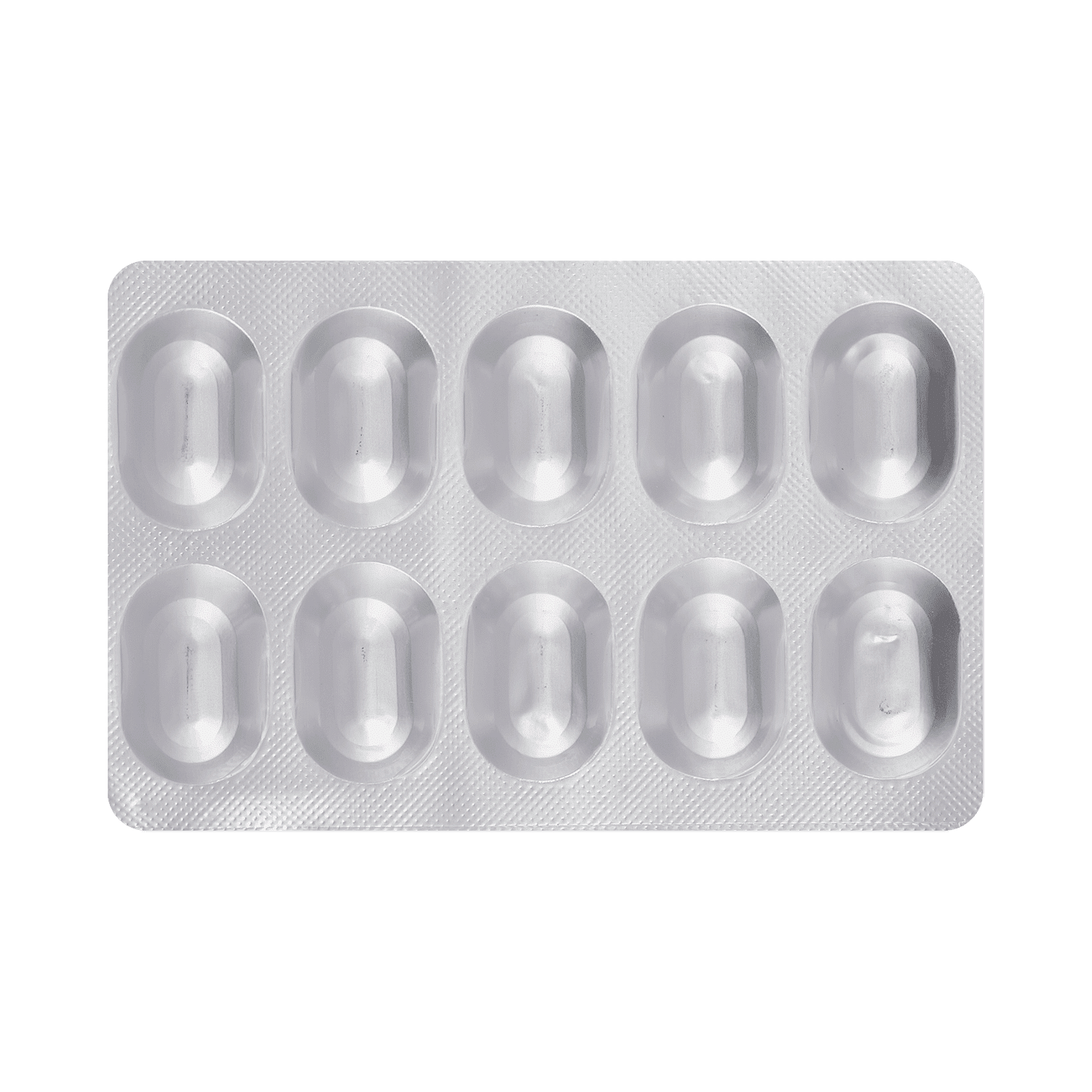
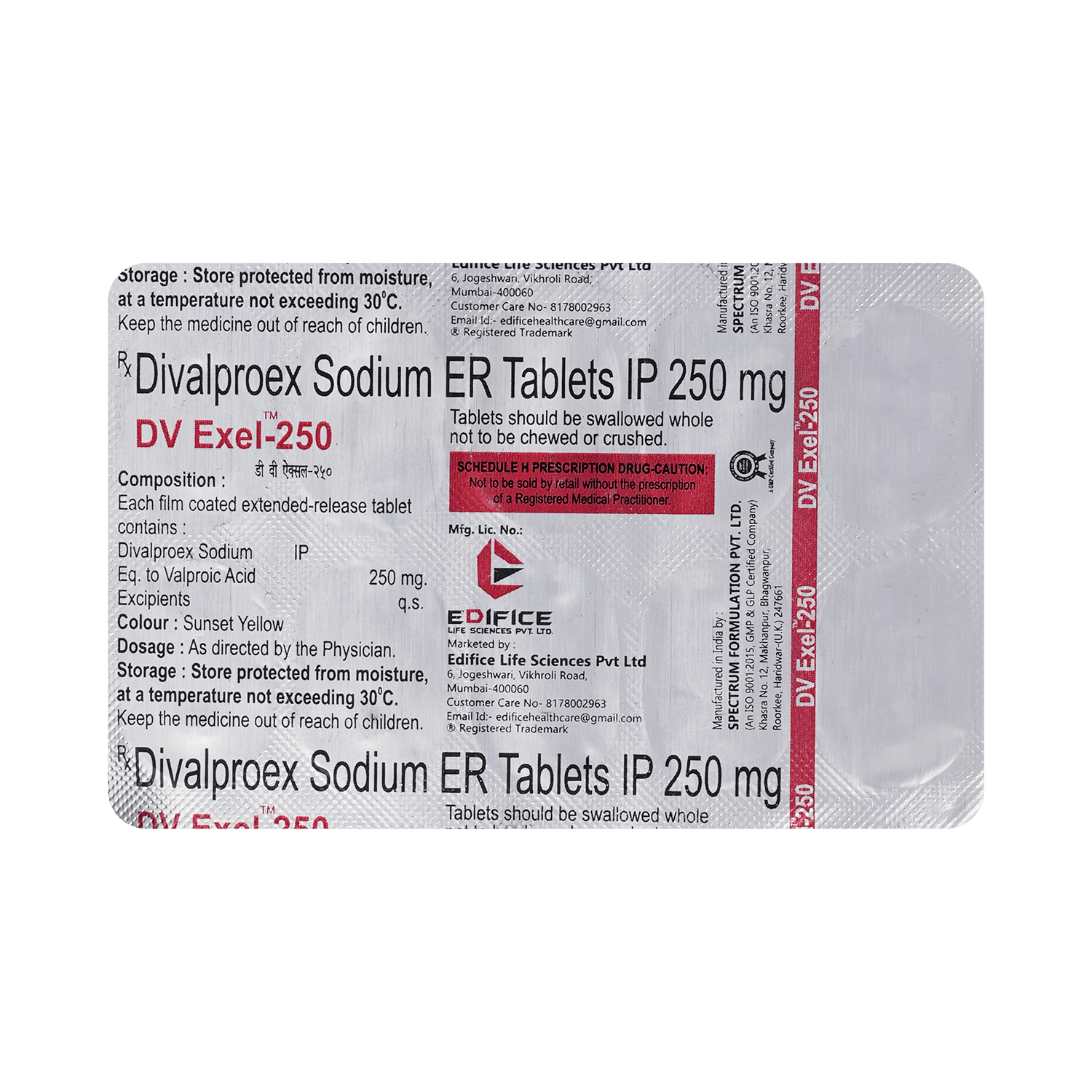
DV Exel Tablet ER
Manufacturer
Edifice Healthcare
Salt Composition
Divalproex (250mg)
Key Information
Short Description
DV Exel Tablet ER is a medicine used to treat epilepsy, prevent and control seizures (fits), and prevent migraines. It is also used in the prevention of bipolar disorder.
Dosage Form
Tablet ER
Introduction
DV Exel Tablet ER may be used alone or in combination with other medicines. The dose and how often you need to take it will be decided by your doctor so that you get the right amount to control your symptoms. You can take this medicine with or without food but take it at the same time each day to get the most benefit. It usually takes a couple of weeks to work. It is important to take this medicine regularly and for as long as you are advised even if you feel well. Missing doses may trigger seizures and if you stop your condition may get worse. It should never be stopped suddenly.
Directions for Use
Take this medicine in the dose and duration as advised by your doctor. Swallow it as a whole. Do not chew, crush or break it. DV Exel Tablet ER may be taken with or without food but it is better to take it at a fixed time.
Safety Information
Side Effects
Headache Blurred vision Nausea Vomiting Dizziness Tiredness Unsteadiness Bruising Decreased body temperature
Alcohol Warning
DV Exel Tablet ER may cause excessive drowsiness with alcohol.
Breastfeeding Warning
DV Exel Tablet ER is safe to use during breastfeeding. Human studies suggest that the drug does not pass into the breastmilk in a significant amount and is not harmful to the baby.
Pregnancy Warning
DV Exel Tablet ER is unsafe to use during pregnancy as there is definite evidence of risk to the developing baby. However, the doctor may rarely prescribe it in some life-threatening situations if the benefits are more than the potential risks. Please consult your doctor.
Interacting Medicines
Alprazolam Chlordiazepoxide Clobazam Clonazepam
How it works
DV Exel Tablet ER is an antiepileptic medication. It controls seizures or fits by decreasing the abnormal and excessive activity of the nerve cells in the brain.
Quick Tips
Take your medication regularly as directed by your doctor as missing doses can trigger seizures. It can be taken with or without food Better to take with food to avoid stomach upset. Do not change the brand of your medicine and make sure that you have sufficient amount of medicine present with you. Practice yoga every day. Get enough sleep at nighttime. Limit the use of screen time such as mobile/laptop. Take your medication on time. Monitor your weight during treatment with this medicine as it can cause weight gain.
Related Medicines

Dicorate ER 250 Tablet
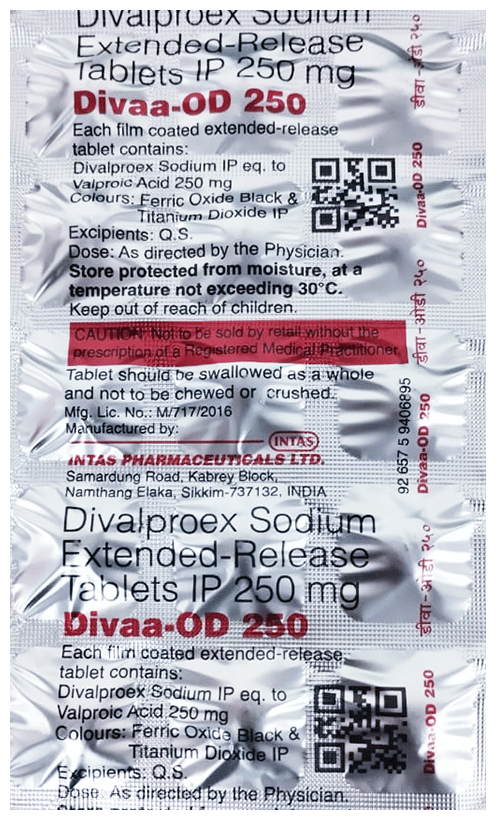
Divaa-OD 250 Tablet
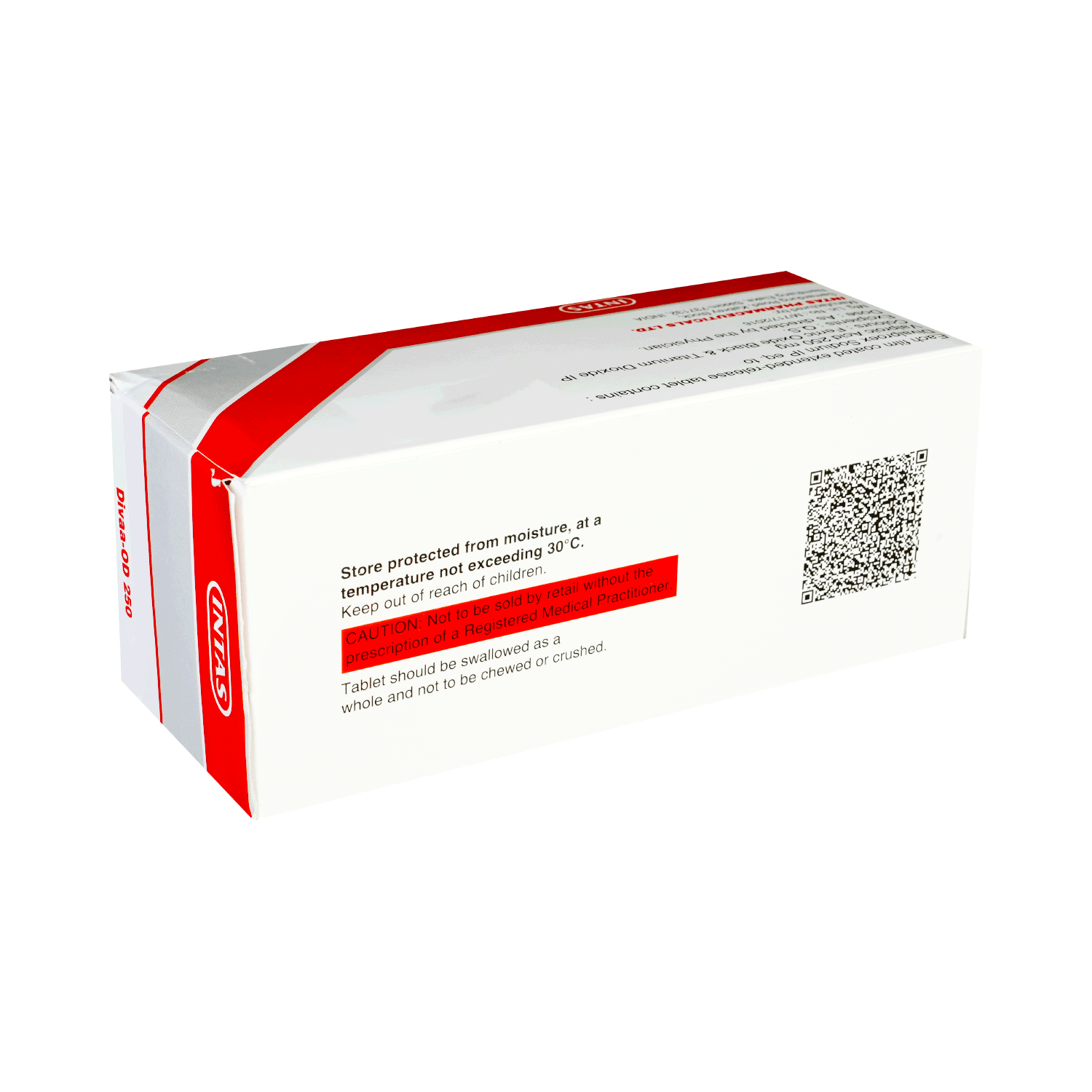
Divaa-OD 250 Tablet
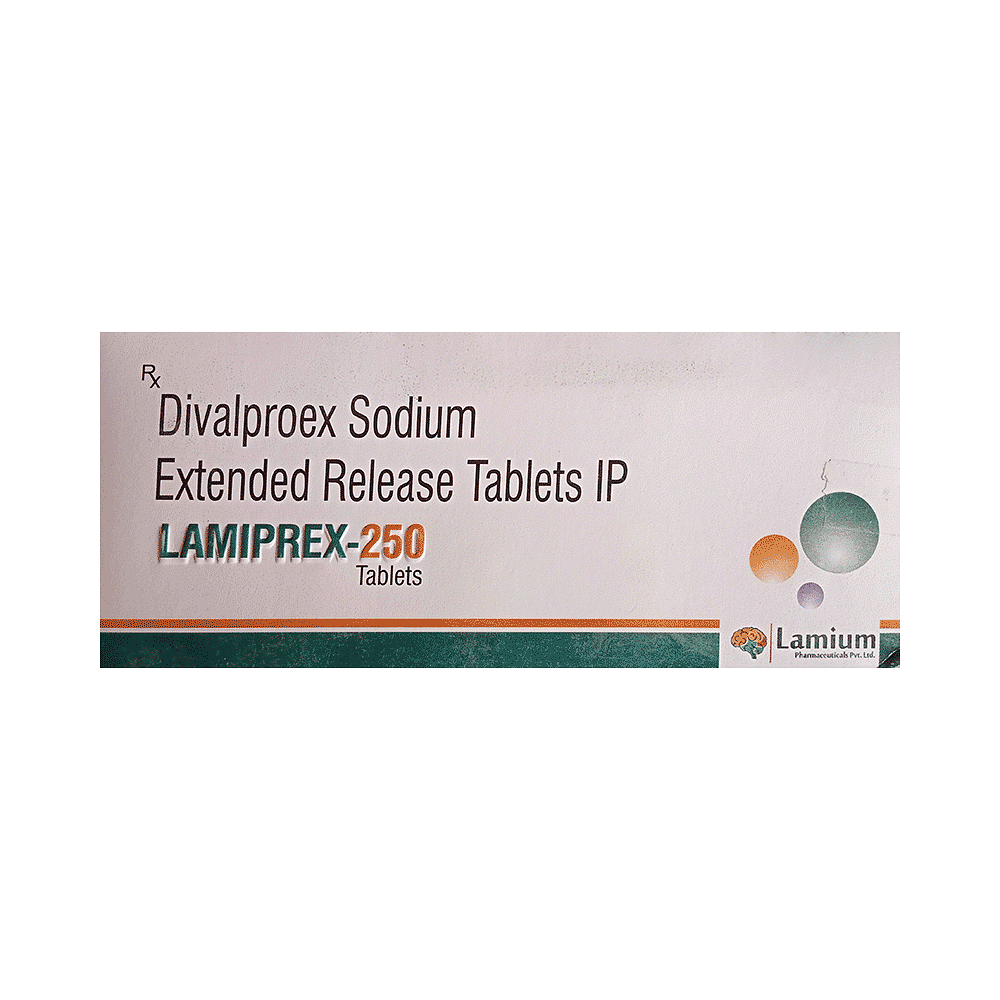
Lamiprex 250 Tablet ER
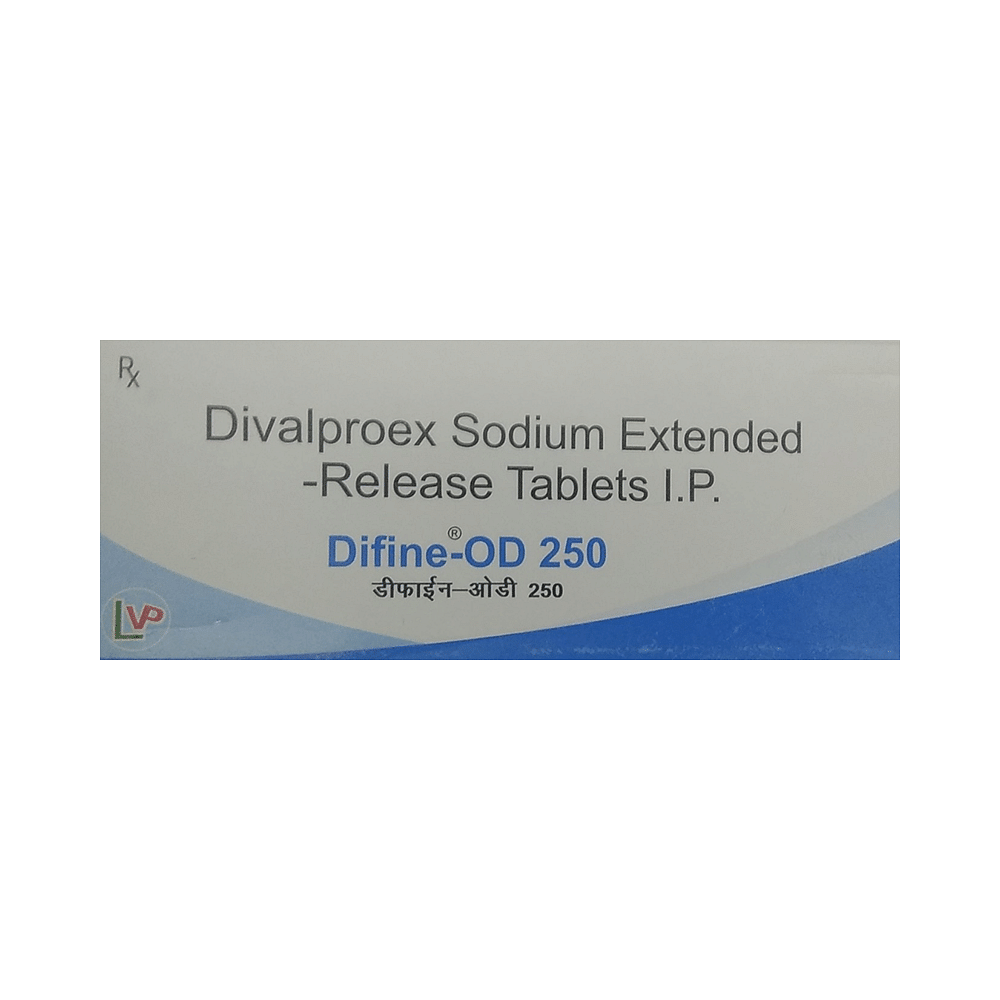
Difine-OD 250 Tablet ER

Adreval 250mg Tablet ER

Naval 250mg Tablet ER

Binaprex 250mg Tablet ER

Veprex 250mg Tablet ER

Di Elival 250mg Tablet ER
Frequently asked questions
What happens if I stop taking DV Exel Tablet ER?
It is essential to consult your doctor before stopping DV Exel Tablet ER. Gradually reducing the dose under the supervision of a doctor or specialist is recommended. Sudden discontinuation may lead to the recurrence of symptoms, irritability, anxiety, dizziness, and tremors.
Is DV Exel Tablet ER a mood stabilizer?
Yes, DV Exel Tablet ER can be used as a mood stabilizer in patients who experience rapid mood changes. It works by calming the hyperactivity of the brain during mood fluctuations.
Can DV Exel Tablet ER cause weight gain?
Yes, DV Exel Tablet ER may cause weight gain due to increased hunger. Regular exercise and a balanced diet can help manage weight gain. If you have concerns, consult your doctor.
Does DV Exel Tablet ER make you sleepy?
Yes, DV Exel Tablet ER may cause drowsiness. Avoid driving or engaging in activities that require mental focus until you understand how it affects you.
Does DV Exel Tablet ER cause hair loss?
Yes, DV Exel Tablet ER may cause temporary hair loss, which is usually dose-related. Consult your doctor if the hair loss persists or bothers you.
Can DV Exel Tablet ER damage my liver?
Yes, DV Exel Tablet ER can cause liver damage, particularly during the first six months of treatment. Symptoms may include nausea, vomiting, loss of appetite, stomach pain, dark-colored urine, facial swelling, and yellowing of the skin or eyes. Regular liver function tests are recommended, especially in those at risk or with a prior history of liver disease.
Can I take alcohol while I am taking DV Exel Tablet ER?
It is recommended to avoid consuming alcohol while taking DV Exel Tablet ER, as it may enhance the sedative effects, leading to drowsiness, lightheadedness, or dizziness.
What are the laboratory tests recommended prior to taking DV Exel Tablet ER?
Your doctor may recommend blood tests before starting treatment with DV Exel Tablet ER, including blood cell count, platelet count, bleeding time, and coagulation tests. Liver function tests are also advised, particularly during the first six months of therapy, especially in those at risk or with a prior history of liver disease.
What should be done if I start experiencing abdominal pain, nausea, and anorexia?
If you experience severe abdominal pain accompanied by nausea and vomiting, it may be a sign of pancreatitis. Consult your doctor immediately, and they may recommend a serum amylase test. If the test is positive, the medication should be stopped immediately.
How to check for overdose of DV Exel Tablet ER?
Overdose symptoms may include headaches, blurred vision, decreased reflexes, confusion, fatigue, weak or 'floppy' muscles, seizures, loss of consciousness, behavioral changes, and breathing difficulties such as fast breathing, shortness of breath, or chest pain. Seek immediate medical attention if you suspect an overdose.


